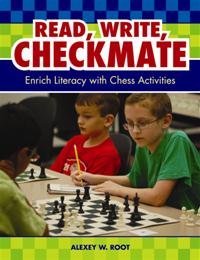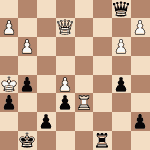In the pre-COVID era of in-person university classes, the “Freshman 15” referred to the 15 pounds that many freshmen gained during their first year of living on campus. Now most freshmen, along with the rest of us, are living at home. Yet home life has also led to weight gain for many people.
For every person posting a sweaty ‘crushed it’ selfie on Instagram, there’s another one (or four) just trying to endure pandemic-induced stress
InThe New York Times, Courtney Rubin wrote, “For every person posting a sweaty ‘crushed it’ selfie on Instagram, there’s another one (or four) just trying to endure pandemic-induced stress. Add in constant access to the refrigerator and a pantry overstocked with panic buys, and the guilt about what we’ve eaten — or the exercise we haven’t done — piles on faster than you can say ‘Quarantine 15.’”
Can ideas from chess help with losing those 15 extra pounds? Here are two ideas that I am trying for losing weight. However, I don’t have any medical or nutrition background. Consult your physician before beginning a weight-loss plan.
The number 64
As every chess player knows, there are 64 squares on the chess board, contained in a grid of 8 files by 8 ranks. You may have also heard the advice to drink eight 8-ounce glasses (64 fluid ounces) each day. Water isn’t your only hydration choice, but it’s the lowest-calorie one.
Sometimes when you feel hungry, you might just be thirsty. Drinking water at those times, rather than eating, means fewer calories consumed. From now until January 1, 2021, I resolve to drink 64 fluid ounces of water each day.
I may drink tap water, which is free. However, smartwater is an appealing alternative, since its parent company, Coca-Cola, has a cooperation agreement with FIDE. I can buy smartwater at local grocery stores. “Chess Water” from India also appeals to me but is not available in Texas.
Notate and annotate
To take notation in a particular game, record each of your moves and each of your opponent’s moves too. After notating your game, annotate it. Annotation means reviewing each move and then commenting on key moves.

Write when you played a good move and why it was good. Usually, good moves for one’s side won material, developed pieces, or improved king safety.
In my book Read, Write, Checkmate: Enrich Literacy with Chess Activities, I gave four annotation guidelines. Here are the first two:
- Write when you played a good move and why it was good. Usually, good moves for one’s side won material, developed pieces, or improved king safety.
- Write why you played a poor move and why it was poor. Poor moves for one’s side lost material, left pieces on the back rank, or put the king in danger.
Just as notating and annotating your games helps you improve at chess, recording and analyzing what you eat and drink is a proven strategy for weight loss. According to Healthline, “self-monitoring what foods you consume is the most effective way to lose weight.”
I use Lose It!, a free app for Apple and Android devices, to record my daily intake. Since I don’t have apps on my phone, I link to Lose It! on my laptop. While Lose It! does not tell me if a particular food is good or bad, it does tell me what each food contributes, for example analyzing its carbohydrate/fat/protein composition along with its total calories. For weight loss, I care most about whether each day ends in a calorie surplus or deficit. From now until January 1, 2021, keeping track on Lose It!, I will consume fewer calories than I expend.
The holiday season
Harvard Women’s Health Watch summarized one research team’s holiday weight-gain study: “The team found that in all three countries, participants’ weights were about 0.5% higher 10 days after Christmas than they were 10 days before. The volunteers also gained an average of 0.2% to 0.3% over the other holidays. The study was published Sept. 22, 2016, in The New England Journal of Medicine.”
One of the holidays studied was Thanksgiving, celebrated in the United States on the fourth Thursday in November. In the United States, New Year’s Day (January 1) marks the end of the holiday season.
Therefore, my two chess-based weight loss ideas will be in effect from November, before Thanksgiving, to January 1, 2021. I’ll report back in January if achieving those two underlined goals above resulted in losing any of my “Quarantine 15.”
